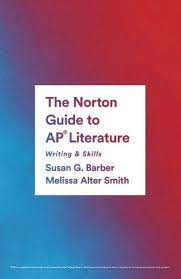This reader reflection was written by Brian Hannon and Susan Barber, and we acknowledge this post does not earn the sophistication point.
I (SB) was so excited to read for Q3 this year since it’s the question I have the least experience with both at the reading and in the classroom. I’ve only read for Q3 one other time (idealism in 2019) – a minute ago – so I knew there would be a learning curve and time to settle into scoring texts that I 1 – had not read in a long time or 2 – I had never read or even had no familiarity. Would I be able to follow a student’s argument without knowing the book? What if the work was made up? These are all of the things that were in my head before the reading, but on day one of sample selection I quickly settled into reading and scoring essays without any issues (sans reading handwriting).
Here’s the 2024 Question 3 Operational (paper) prompt:
Many works of literature feature a character who may be reluctant to make a decision, unable to make a decision, orbis resistant to doing so. This indecision can have broader implications for that character or other characters. Such implications may include changes to a character’s relationships, social and/or financial stability, well-being, or any other aspects of the character’s existence.
Either from your own reading or from the list below, choose a work of fiction in which a character delays or avoids making a decision. Then, in a well-written essay, analyze how the impact of this indecision contributes to an interpretation of the work as a whole. Do not merely summarize the plot.
Here’s all of the titles I came across – the ones circled were referenced most often.


What students did well –
Thesis:
The majority of students earned the thesis point, and many responses had thesis statements that previewed a line of reasoning.
I found that students were creative in their interpretations of what constituted a moment of “indecision.” Most of what they came up with was defensible/plausible!
Evidence and Commentary –
The two most common line of reasoning paths were organized around
- Broad ideas/topics (Lear’s indecision resulted in Downfall of kingdom —-> Destruction of family bond —-> Loss of personal sanity)
- Chronological events (Tate’s relationship with Kya before he leaves (contextualization) —->The impact of the indecision on Kya —->The impact of the indecision on other characters)
Strong responses supported the argument with specific evidence then connected that evidence to broader implications. For example, Daisy’s indecision reflected the carelessness of the upper class or Hamlet’s indecision was an example of the manifestation of grief.
Sophistication
Most responses that earned the sophistication point did so through path 1 – exploring complexities and tensions within the text. One response on the Metamorphosis went into great detail about the different family members and Gregor’s feeding/lack of. This analysis was so nuanced and opened new paths of interpretation on the work as a whole.
Another response that stood out in regards to sophistication contrasted the indecision of Aaron Burr to the impulsiveness of Alexander Hamilton; the response went into great specificity on the impact of Burr’s indecision and how that even affected Hamilton’s ability to make quick decisions. The essay was pure genius.
Where Students Can Grow –
Thesis –
I’m interested to see the percentage in the Chief Reader report because I think it will be lower than last year’s average of 90(ish). To earn the point, students had to analyze how the impact of this indecision contributes to an interpretation of the work as a whole. Unfortunately, some students’ thesis statements either 1 – identified an indecision but made no mention of the impact of the indecision or 2 – identified a decision rather than an indecision.
Responses that identified an indecision earlier in the paper and fleshed out the impact in a body paragraph or if a student identified a decision but spoke of reluctance or hesitancy about the decision in a body paragraph were fairly common.
Students’ thesis statements could also be a bit more adherent to the prompt. Oftentimes, readers would have to piece information together from throughout the intro/body paragraphs to grant students the thesis point. It would help if students could “tidy up” their points into a more succinct statement, i.e. “Billy’s inability to make a decision between door A and B underscores the theme that ___________.,” or something to that extent.
Evidence and Commentary
I (BH) can’t stress enough how important this is because specific evidence is much more likely to lead to more in depth analysis. For example, Hamlet responses that discussed Hamlet’s reluctance to make a decision about revenge led to many deaths in the play; these responses often chronicled the deaths with some general analysis on them as a group.
Like Susan said, the essays with the best evidence/commentary were essays that were able to pull specific examples from throughout the book that exemplified the theme, as was expressed in their intro. Far too often, students just skated around the general concept of the character’s indecision rather than providing the context behind it.
Moreover, students had a very difficult time discussing how their evidence (about the indecision) related to the overarching theme. So, for example, many students would simply say, “Billy was indecisive in this instance” and then simply move onto the next paragraph without spending time to discuss how that moment contributed to the meaning of the work as a whole.
Sophistication
The only essays that received the sophistication point were essays that were direct in their discourse about the work’s “meaning of the work as a whole.” I did see some essays that had a solid line of reasoning, but none of them were able to receive the sophistication point without discussing how the novel’s plot points exemplify some larger universal truth. Many, many students only talked about the indecision within the context of the novel; basically all of those essays tended to be shallow in nature and underdeveloped. It was only the essays that discussed the larger implications of the indecision that managed to receive the sophistication point.
Teaching Points –
Personally, I (BH) think I am going to continue working on my students’ ability to draw connections between the text and the prompt. Again, the biggest area of weakness I saw from the reading was students’ inability to create a solid link between the character’s indecisiveness and the meaning of the work as a whole. I may try to do some “hot seat” type activities and have them try to pull examples – on the spot – and defend the link between a character’s indecision and how it supports theme 1, theme 2, etc. I’m not sure what that will look like quite yet, but I’ll throw something together and share it with you when my brain recovers from the reading!
I also think that I’ll spend a bit of time working “backwards” when we’re done with the novel. For example, when we finish Parasite, I think I’ll spend time looking at particular themes and having them go back through the work to see how the author is able to express it throughout the text. I know that this is a common practice amongst us all, but from the reading this year, it’s apparent that a lot of students don’t engage with theme when they’re in a timed setting and merely resort to summary, so it’s important to reinforce that the “meaning of the work as a whole” inextricable from the text itself and that they always need to be discussed in tandem with one another.

Brian Hannon is the Director of Secondary Curriculum for LMSvoice. He currently teaches AP Literature , AP Language , and English 10 in Alexandria, Virginia. Brian was the co-founder of the poetryN.O.W., and through his involvement with this organization, Brian went on to found the two largest youth poetry events in his area, the Hyper Bole and Louder than a Bomb. When poetryN.O.W. was absorbed by Split This Rock, a non-profit organization in Washington D.C. that meets at the intersection of poetry and social justice, Brian served as their Youth and Education Development Fellow.
Susan Barber teaches AP® English Literature at Midtown High School in Atlanta, Georgia, and serves as co-chair of the AP® Literature Development Committee. She is the coauthor of The Norton Guide to AP® Literature: Writing & Skills (2022), forthcoming engaging lessons book with Brian Sztabnik (Corwin), ELA consultant, and blogger. Susan is most proud of the work she does on a daily basis in E216 and never tires of the beauty and chaos of the classroom.
Cover Photo by Kyle Glenn on Unsplash












